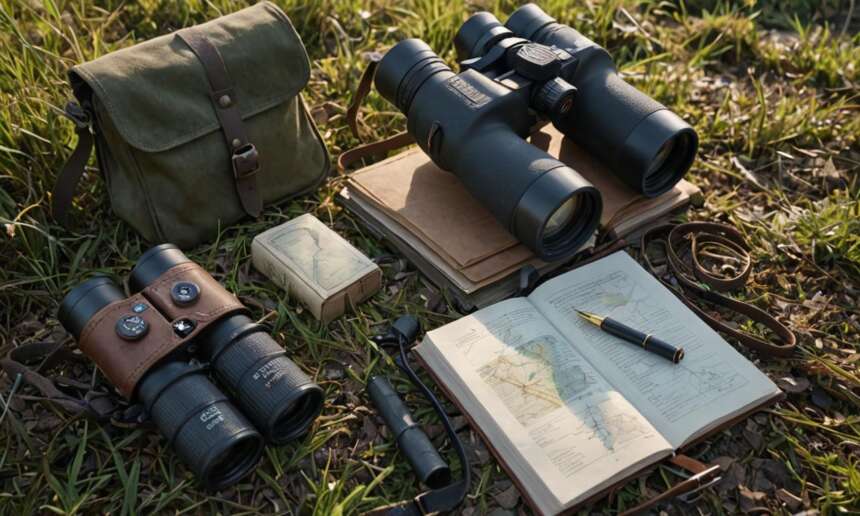Embarking on a career as a wildlife biologist is an exciting journey into the natural world, where you can play a crucial role in understanding and conserving various species and their habitats. Here, we will guide you through the steps to become a successful wildlife biologist.
Educational Pathway
First and foremost, obtaining a solid education forms the foundation of your career in wildlife biology. Pursuing a bachelor’s degree in biology, ecology, zoology, or a related field is typically the starting point. During your undergraduate studies, focus on coursework that emphasizes ecology, wildlife management, conservation biology, and research methods.
After completing your bachelor’s degree, consider pursuing a master’s or even a doctoral degree to specialize further in wildlife biology. Advanced degrees provide opportunities for in-depth research, fieldwork, and specialization in areas such as population ecology, animal behavior, or conservation genetics.
Gain Experience
Hands-on experience is invaluable in the field of wildlife biology. Seek internships, volunteer opportunities, or entry-level positions with government agencies, non-profit organizations, research institutions, or environmental consulting firms. These experiences will not only enhance your practical skills but also expand your professional network.
Participate in fieldwork, where you can conduct surveys, collect data, and monitor wildlife populations in their natural habitats. Additionally, consider joining professional societies and attending conferences to stay updated on the latest research and trends in the field.
Develop Specialized Skills
Wildlife biologists require a diverse skill set to excel in their roles. Develop strong analytical skills for data interpretation and statistical analysis, as well as proficiency in geographic information systems (GIS) for mapping and spatial analysis.
Effective communication skills are essential for conveying research findings, collaborating with colleagues, and engaging with stakeholders. Furthermore, honing your writing abilities for scientific publications, grant proposals, and reports is crucial for advancing in the field.
Networking and Professional Development
Networking plays a vital role in advancing your career as a wildlife biologist. Attend workshops, seminars, and networking events to connect with professionals in the field. Building relationships with mentors and colleagues can provide guidance, support, and potential job opportunities.
Continuously invest in professional development by pursuing certifications, attending training programs, or obtaining additional qualifications relevant to your area of specialization. Stay informed about emerging technologies and methodologies to remain competitive in the field.
Job Opportunities
Upon completing your education and gaining relevant experience, explore job opportunities in various sectors, including government agencies, research institutions, non-profit organizations, conservation groups, and consulting firms. Wildlife biologists may work in roles such as research scientists, conservationists, wildlife managers, or educators.
Consider the geographical location and specific interests when searching for job openings. Some positions may require relocation or fieldwork in remote areas, while others may focus on policy development, advocacy, or education.
Becoming a wildlife biologist is a rewarding and fulfilling career path for individuals passionate about conservation and the natural world. By following the educational pathway, gaining experience, developing specialized skills, networking, and exploring job opportunities, you can embark on a successful journey in wildlife biology.
Frequently Asked Questions
Here are some common questions aspiring wildlife biologists often have:
| Question | Answer |
|---|---|
| 1. What is the typical salary range for wildlife biologists? | The salary range for wildlife biologists can vary depending on factors such as education, experience, location, and employer. Entry-level positions may start at around $35,000 to $45,000 per year, while experienced professionals with advanced degrees and significant experience can earn upwards of $70,000 to $100,000 or more annually. |
| 2. What are some common tasks performed by wildlife biologists? | Wildlife biologists may engage in a variety of tasks, including conducting field surveys, collecting and analyzing data, monitoring wildlife populations, developing conservation plans, conducting research studies, writing reports and scientific papers, and collaborating with other professionals and stakeholders. |
| 3. Is it necessary to obtain a master’s or doctoral degree to become a wildlife biologist? | While a bachelor’s degree is typically the minimum requirement for entry-level positions in wildlife biology, obtaining a master’s or doctoral degree can significantly enhance career opportunities and enable specialization in specific areas of interest, such as population ecology, conservation genetics, or wildlife management. |
| 4. What are some challenges faced by wildlife biologists? | Wildlife biologists may encounter challenges such as habitat loss and fragmentation, climate change, invasive species, pollution, human-wildlife conflicts, and balancing conservation efforts with economic development and land use priorities. Additionally, funding constraints, limited resources, and political pressures can impact conservation initiatives. |
Continuing Education and Skill Development
Continuing education and skill development are crucial aspects of a wildlife biologist’s career:
- Engage in ongoing professional development opportunities, such as workshops, seminars, and online courses, to stay updated on advancements in the field.
- Seek opportunities to enhance specialized skills, such as GIS proficiency, statistical analysis, and communication abilities.
- Consider pursuing certifications or advanced degrees to expand career opportunities and expertise in specific areas of wildlife biology.
International Opportunities
Wildlife biology offers opportunities for international collaboration and fieldwork:
- Explore international research and conservation initiatives to gain cross-cultural experience and contribute to global biodiversity conservation efforts.
- Consider participating in exchange programs, research projects, or volunteer opportunities abroad to broaden your perspective and expertise in wildlife biology.
- Collaborate with international organizations and researchers to address global conservation challenges and exchange best practices.




